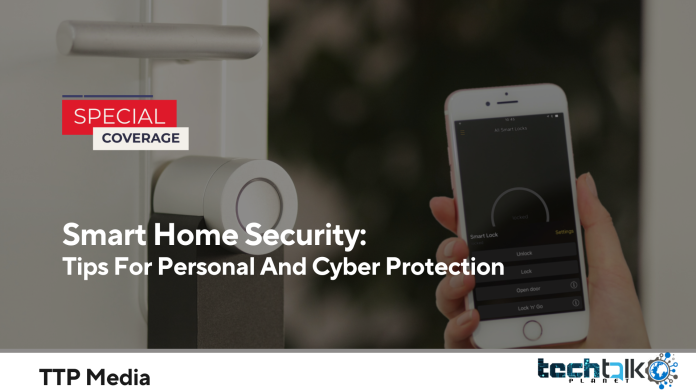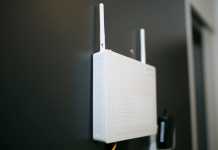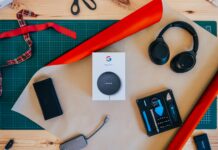
Smart home technology has become increasingly popular, and the U.S. smart home market is expected to be worth nearly $50 billion by 2026. While smart devices like light bulbs, assistants, and thermostats can make life more convenient and save on energy bills, installing and maintaining smart security systems can also save consumers money by cutting up to 13% from homeowners’ insurance premiums, according to NerdWallet.
Despite the convenience of smart home security, there are important scurity measures that homeowners should take to protect their personal and cyber safety.
Create Strong Passwords
One important security tip is to create strong passwords for all smart devices and email or commerce accounts that control them. Changing any default device passwords is crucial, as many devices often come with simple, easily-guessed passwords. For example, the password to log into the router may be something like “admin” and “password123.” Experts recommend a 12-16 character password that includes a phrase or a scramble of significant dates.
Keep Your Home Wi-Fi Secure
It’s important to keep smart devices on the main house account and not allow visitors to access it. Many Wi-Fi routers allow for the creation of a guest account with a separate username and password, which visitors can use to connect to the internet. When visitors connect to the main Wi-Fi, they carry the network information with them on their devices, potentially compromising the safety of the network. Experts warn that friends, family, and neighbors who connect to your Wi-Fi could be broadcasting your sensitive security information everywhere they go.
Be Mindful of the Devices Connected to Your Network
Many new household appliances, such as faucets, microwaves, and InstantPots, are Wi-Fi-enabled, but just because something can connect to the internet, doesn’t mean it should. If a device is unlikely to be controlled through a connected app or used in any meaningful way, it’s best not to connect it to the network. Everything that’s connected is potentially something that could be attacked, and a device with a vulnerability or a default password that you’re not even aware of can become a way for someone to attack your network and potentially compromise everything else.
Smart Home Security Systems Are Easy to Set Up
Smart home security systems are designed to be easy to set up right out of the box, even if you’re not a tech expert. Many companies offer various products, and it has become a race to make them very user-friendly for the average consumer to pick up, go home, plug in, and have them connected.
In conclusion, smart home security can save consumers money on insurance premiums, but it’s important to keep in mind the security risks associated with these devices. Homeowners should create strong passwords, keep their Wi-Fi secure, and be mindful of the devices they connect to their network to ensure their personal and cyber safety.














































